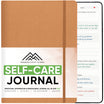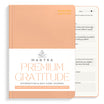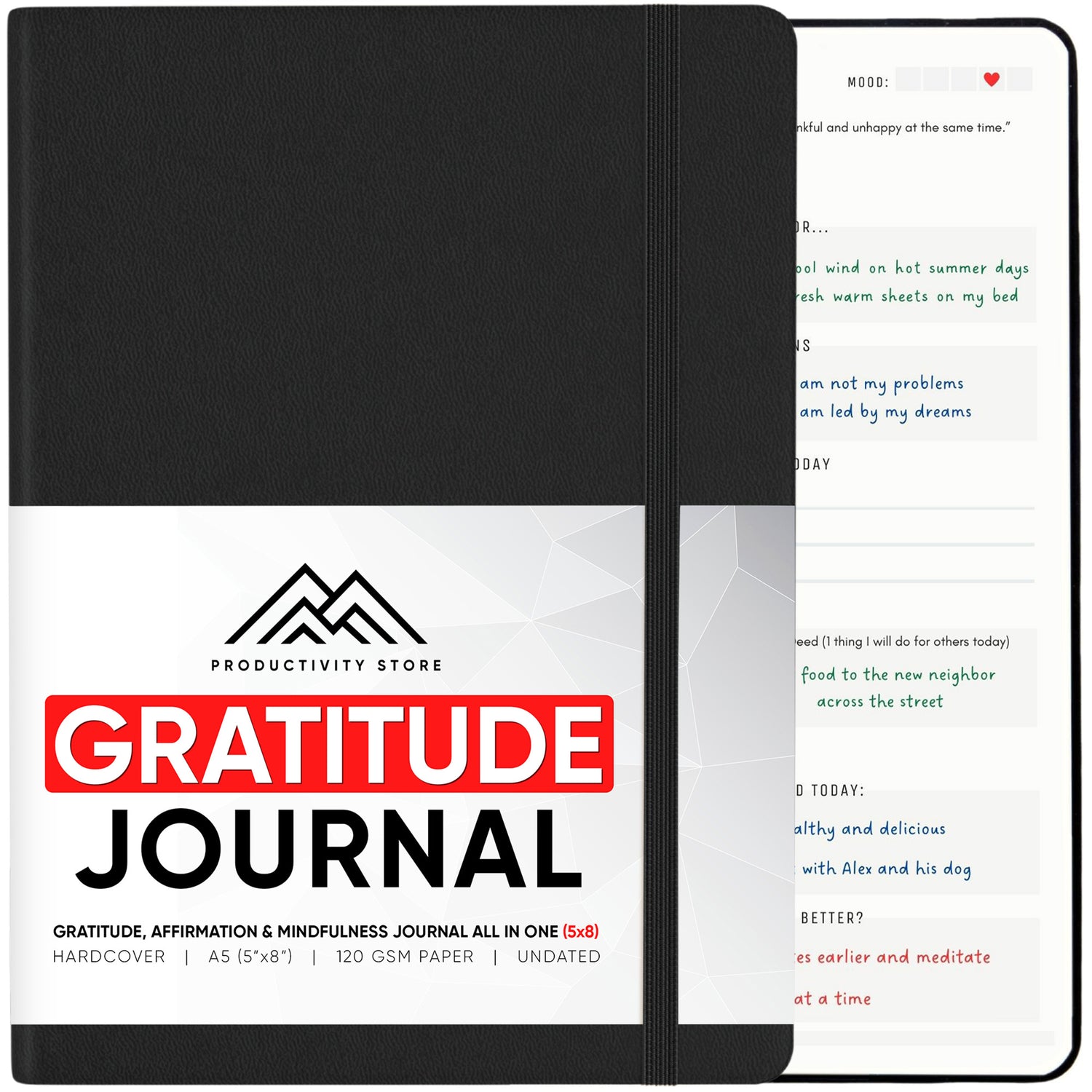The Power of Gratitude Journaling
In a world filled with hustle and bustle, stressors, and distractions, finding moments of gratitude can be a beacon of light in our lives. Keeping a gratitude journal is a simple yet profoundly effective way to cultivate appreciation for the good things in our lives, big and small. In this comprehensive guide, we'll delve into the intricacies of gratitude journaling, offering practical tips and insights to help you embark on this transformative journey.
Getting Started: Setting the Foundation
Choosing Your Medium
Selecting the right medium for your gratitude journal is crucial. Whether you prefer the tactile experience of pen and paper, the convenience of a digital platform, or the versatility of a word processor, the choice is yours. What matters most is consistency and accessibility.
Setting the Scene
Find a quiet, comfortable space where you can reflect without distractions. Create a ritual around your journaling practice, whether it's the first thing you do in the morning or a reflective pause before bed. Establishing a routine enhances the efficacy of your gratitude practice.
The Art of Gratitude: Writing with Purpose
Be Specific
When jotting down moments of gratitude, specificity is key. Instead of generic statements, such as "I'm thankful for my family," delve deeper into the specifics of why you're grateful. For example, "I'm grateful for my sister's comforting presence during a challenging time."
Depth Over Breadth
Rather than compiling a laundry list of blessings, focus on exploring the depth of each gratitude. Take the time to articulate why a particular person, experience, or thing brings you joy. By delving into the intricacies, you amplify the emotional impact of your reflections.
Personal Connection
Direct your gratitude towards individuals who have touched your life in meaningful ways. Expressing appreciation for the people around you fosters deeper connections and strengthens relationships. Whether it's a friend's unwavering support or a mentor's guidance, acknowledge the significance of their presence in your life.
Advanced Techniques: Elevating Your Practice
The Power of Subtraction
In addition to counting your blessings, contemplate the absence of certain people or circumstances. Reflect on the challenges you've overcome and the adversities you've avoided. By acknowledging the negatives you've transcended, you gain a newfound appreciation for the positives in your life.
Viewing Gifts Through a New Lens
Shift your perspective by viewing the blessings in your life as gifts. Rather than taking them for granted, approach each joyous moment with a sense of reverence and gratitude. By reframing your experiences as gifts, you cultivate a deeper sense of appreciation for life's abundance.
Embracing Surprises
Embrace the unexpected twists and turns that life presents. Record moments of serendipity and spontaneity, relishing in the joy of surprises. These unexpected blessings often evoke profound feelings of gratitude, reminding us of life's inherent beauty and unpredictability.
Sustaining Your Practice: Cultivating Consistency
Aim for Variety
While it's natural to gravitate towards familiar sources of gratitude, challenge yourself to explore new avenues of appreciation. Experiment with different aspects of your life, from mundane daily occurrences to significant milestones. Embrace variety to keep your gratitude practice fresh and engaging.
Establishing Routine
Consistency is key to reaping the full benefits of gratitude journaling. Whether you commit to daily reflections or bi-weekly entries, prioritize regularity in your practice. Set aside dedicated time for journaling, honoring the commitment to self-reflection and growth.
Why You Should Try It
It’s easy to take the good things and people in our lives for granted, but research suggests that consciously giving thanks for them can have profound effects on our well-being and relationships. This exercise helps you develop a greater appreciation for the good in your life. In fact, people who routinely express gratitude enjoy better health and greater happiness.
Why It Works
While it’s important to analyze and learn from bad events, sometimes we can think too much about what goes wrong and not enough about what goes right in our lives. A gratitude journal forces ourselves to pay attention to the good things in life we might otherwise take for granted. In that way, we start to become more attuned to the everyday sources of pleasure around us—and the emotional tone of our life can shift in profound ways. What’s more, actually writing about these events is key: Research suggests translating thoughts into concrete language makes us more aware of them, deepening their emotional impact.
Evidence That It Works
Emmons, R. A., & McCullough, M. E. (2003). Counting blessings versus burdens: An experimental investigation of gratitude and subjective well-being in daily life. Journal of Personality and Social Psychology, 84(2), 377-389.
People who wrote in a Gratitude Journal weekly for 10 weeks or daily for two weeks experienced more gratitude, positive moods, and optimism about the future, as well as better sleep, compared to those who journaled about hassles or their daily life.
Who Has Tried the Practice?
Undergraduate students at a large American public university and patients at the University of California, Davis, Neuromuscular Disease Clinic participated in the above study. Around 76% of the participants were women. Data on ethnicity and race are unavailable for this study, but additional studies explore how the Gratitude Journal benefits different groups and cultures:
A group of predominantly white and highly educated people in Brazil increased in positive emotion, happiness, and life satisfaction and decreased in negative emotion and depression after daily gratitude journaling for two weeks.
Polish natives also increased in well-being after gratitude journaling.
Turkish university students improved in college adjustment, life satisfaction, and positive emotion after three weeks of gratitude journaling.
In a New Zealand study, people with arthritis experienced less pain, everyday interferences from their pain, and pain-related anxiety and more self-efficacy after gratitude journaling each week for four weeks.
Muslim undergraduate students in Malaysia increased in happiness after two weeks of writing daily notes of Islamic-based gratitude that expressed “their gratefulness to the Merciful Allah who grants them with blessings and is responsible for their grateful and blessed situations.” About 85% of the participants were women.
A four-week Christianity-based gratitude program, in which pastors led activities such as gratitude journaling, sermons, and psychoeducation, improved well-being, life satisfaction, and interpersonal engagement in members of a mostly white congregation in the American Pacific Northwest.
More research is needed to explore whether, and how, the impact of this practice extends to other groups and cultures.
Embark on this transformative journey with an open heart and a willingness to embrace the beauty that surrounds you. With each heartfelt expression of gratitude, you illuminate the path to a more fulfilling and joyous existence.
So, what are you waiting for? Grab your journal and start counting your blessings today.
Learn more: We Make the World's Best Planners & Journals | Productivity Store
Sources
Robert Emmons, Ph.D., University of California, Davis
Sonja Lyubomirsky, Ph.D., University of California, Riverside
References
Al-Seheel, A., & Noor, N. M. (2016). Effects of an Islamic-based gratitude strategy on Muslim students’ level of happiness. Mental Health, Religion & Culture, 19(7), 686–703.
Cunha, L., Pellanda, L. C., & Reppold, C. T. (2019). Positive psychology and gratitude interventions: A randomized clinical trial. Frontiers in Psychology, 10, 9.
Işık, Ş., & Ergüner-Tekinalp, B. (2017). The effects of gratitude journaling on Turkish first year college students’ college adjustment, life satisfaction and positive affect. International Journal for the Advancement of Counselling, 39(2), 164–175.
Krejtz, I., Nezlek, J. B., Michnicka, A., Holas, P., & Rusanowska, M. (2016). Counting one's blessings can reduce the impact of daily stress. Journal of Happiness Studies, 17(1), 25–39.
Swain, N., Thompson, B. L., Gallagher, S., Paddison, J., & Mercer, S. (2020). Gratitude enhanced mindfulness (GEM): A pilot study of an internet-delivered programme for self-management of pain and disability in people with arthritis. The Journal of Positive Psychology, 15(3), 420–426.
Uhder, J., McMinn, M. R., Bufford, R. K., & Gathercoal, K. (2017). A gratitude intervention in a Christian church community. Journal of Psychology and Theology, 45(1), 46–57.























Leave a comment
All comments are moderated before being published.
This site is protected by hCaptcha and the hCaptcha Privacy Policy and Terms of Service apply.